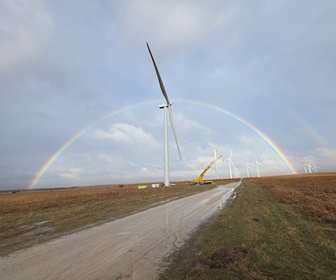“For the first time renewable energy demand in Europe surpasses 500 TWh - or half a billion Guarantees of Origin (GOs),” says Tom Lindberg, Managing Director in ECOHZ, commenting on 2018 statistics from the Association of Issuing Bodies (AIB). The current reported volume is 499 TWh, but this is expected to increase by an additional 10 TWh, when unreported German Q4 figures are included. This will push the expected total demand for renewable electricity documented with Guarantees of Origin close to 510 TWh. This represents a 8% increase from 470 TWh in 2017.
The demand for renewable electricity continuous to show growth in Europe’s biggest markets. The Netherlands, France, Switzerland and Italy show record high demand in 2018. The French market demand increased from 21 TWh to 33 TWh in 2018, while Italy sees record demand of 45 TWh compared to 41 TWh last year. Although the final numbers have not been published for Germany yet, they are in line to exceed 100 TWh for the first time.
Wholesale prices for GOs averaged around 1.30 €/MWh in 2018, while Nordic hydro GOs traded as high as 2.29 €/MWh. This indicates that the market is willing to pay higher prices even though demand did not grow quite as aggressively as in 2017.
With demand for renewable power now exceeding 500 TWh, and forward prices set at around 1.30 €/MWh, the annual value of the market exceeds € 650 million.
Although hydropower is still the greatest source of renewable electricity, preferences are gradually shifting towards alternative renewable sources, with wind power being “the technology of choice”.
Wholesale prices for GOs averaged around 1.30 €/MWh in 2018, while Nordic hydro GOs traded as high as 2.29 €/MWh. This indicates that the market is willing to pay higher prices even though demand did not grow quite as aggressively as in 2017.
With demand for renewable power now exceeding 500 TWh, and forward prices set at around 1.30 €/MWh, the annual value of the market exceeds € 650 million.
Although hydropower is still the greatest source of renewable electricity, preferences are gradually shifting towards alternative renewable sources, with wind power being “the technology of choice”.
Households, organisations and businesses all contribute to the market growth. But the corporate sector is the main driver because more corporations see sustainability as necessary for future competitiveness. Several initiatives exist to support corporate sustainability ambitions. Two notable initiatives are WeMeanBusiness and RE100.









